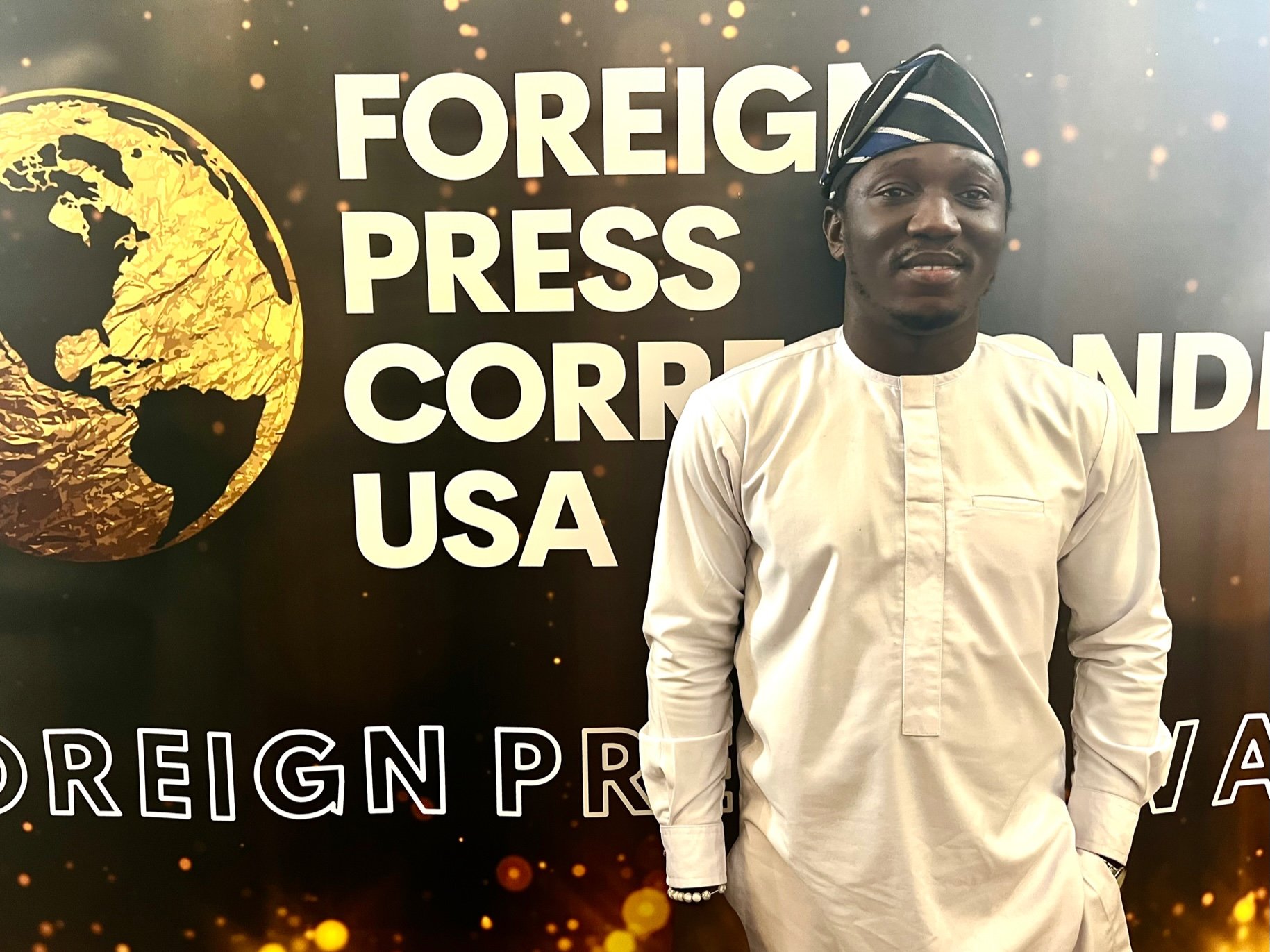"The AFPC scholarship that covers my expenses, is such a relief"

Segun Olakoyenikan (Nigeria) is an AFPC Scholarship Awardee for 2022.
Segun Olakoyenikan is a Nigerian journalist pursuing a Master of Arts degree in Business and Economic Reporting at New York University’s Carter Journalism Institute. Segun is an AFPC Scholarship Awardee from the Association of Foreign Press Correspondents in the USA for 2022. He holds a postgraduate diploma in journalism from the Nigerian Institute of Journalism, and a certificate in financial journalism at the Lagos Business School. He was honored in 2021 with the African Fact-Checking Award for uncovering a falsified EU report on the mass abduction of schoolchildren in Nigeria. Before joining the wire service where he covered business and debunked a wide array of claims ranging from Covid-related misinformation to politicians misusing official data, Segun worked as a financial journalist for leading Nigerian daily newspaper BusinessDay. His reporting experience and efforts against the weaponization of disinformation and propaganda across young democracies in Africa have been useful to budding journalists on the continent. From Nigeria to Ghana and then the Gambia, Segun trained hundreds of journalists in information verification ahead of key elections over the past five years.
What was the primary reason you chose to pursue your master's studies in the United States as a foreign journalist?
I developed a passion for business reporting after I took a certificate course in financial journalism in 2015. I have since put my skills to work by covering the Nigerian economy for multiple local and international media outlets. But I later realized I needed to deepen my knowledge in the specialized field of business journalism, which is rarely offered in journalism schools in Nigeria. I’m convinced there’s no better place to study business journalism in the world than the United States, and more specifically New York University which is reputed for quality journalism training.
Segun Olakoyenikan from Nigeria received his award from Sue Ann Pentecost, head of Integrated Strategic Communications for BAYER, during the Annual Foreign Press Awards Ceremony on December 15, 2022, in New York.
You were recently awarded a scholarship from the Association of Foreign Press Correspondents in the United States. How did you feel about this recognition?
It's a dream come true! I was very excited and indeed honored to be awarded a scholarship from the Association of Foreign Press Correspondents in the United States. Studying in New York City as an international student poses a major financial burden, and I was not exempted in any way. So, knowing I have a scholarship that covers my expenses in the city is such a relief.
As a journalist, how do you expect your studies and the support from the Association of Foreign Press Correspondents in the United States to help you advance your career?
Having spent a chunk of my career covering business and misinformation in sub-Saharan Africa, I hope my master’s program at New York University will advance my reporting skills, widen my horizon and unleash fresh perspectives to covering the most important stories in the world that serve the public good. The support from the Association of Foreign Press Correspondents in the United States will help me to stay focused at NYU and broaden my network of talented journalists who come from diverse backgrounds.
What made you decide to become a journalist? How do you hope to make an impact in the journalism field of your country of origin?
Back home in Nigeria, I lived in a part of the West African country called the Niger Delta. The area produces crude oil for Nigeria and fuels the wealth of the continent's largest economy. But the fortunes have come at a great cost to host communities and residents who drink from oil spills and inhale emissions from production sites for the country’s prosperity.
Some of the residents battled life-threatening ailments and other devastating environmental consequences of crude oil exploration in the region. With many of these stories barely making the mainstream media at the time, the International Center for Journalists supported several locals including myself to tell stories of the victims and give them a voice. That experience informed my decision to fully go into journalism, especially seeing how the government and well-meaning individuals responded to the challenges raised in my stories.
I hope to do more by writing more impactful stories on issues that affect Nigerians, and holding the country’s government to account. I also aim to give back to society by expanding the scope of my journalism training programs to more countries across Africa.
As a foreign journalist, what defines your mission?
My mission is to tell stories that make people’s lives better and engender peace and development in an accurate, fair and balanced manner. As a foreign journalist with a strong background in a numerate discipline, I hope to leverage my academic and professional experiences to write insightful stories by distilling complex information from boring data sets and company filings.
What do you think is the greatest threat to journalism today?
Press freedom. Governments in many countries are working hard to stifle the press. In Nigeria where I worked for several years before coming to the US, journalists are still being attacked and media organizations are threatened for discharging their responsibility of informing the public.

